HR software provider Ciphr surveyed over 1,000 employees and 332 employers to find out more about pay rises in the UK in 2022.
Key findings:
- 27% of employees say they’ve received a pay rise for 2022 (as at March 2022)
- 70% of employees think their last pay rise wasn’t reflective of their job performance
- Employees who think their last pay rise was unfair are more likely to change employer within the next year than those who think their last pay rise was fair (44% compared to 25% respectively)
- 34% of employees say they’d only need to be offered a 10% to 14% pay rise by a recruiter to consider a similar role at a different organisation
- 63% of employers have (or are planning to) award their staff a pay increase for 2022 that’s in line with, or above, the rate of inflation
- Only 17% of employers say that their staff are completely aware of all the different factors that influence whether they will be awarded a pay rise, and how much that pay rise will be
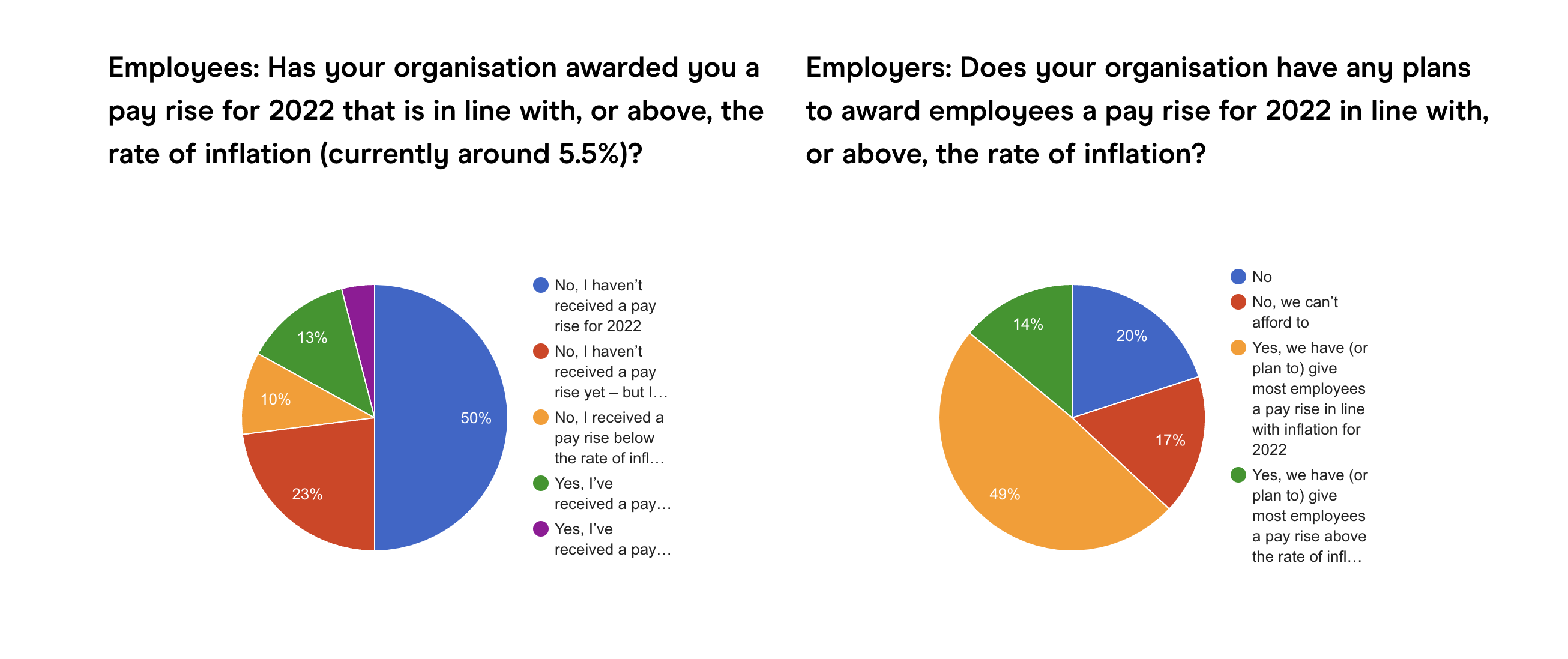
Pay rises: comparison between male and female employees
45% of men and 53% of women say they’ve not received a pay rise for 2022 (to date). Four times as many men than women reportedly received an above inflation wage rise (8% compared to 2%).
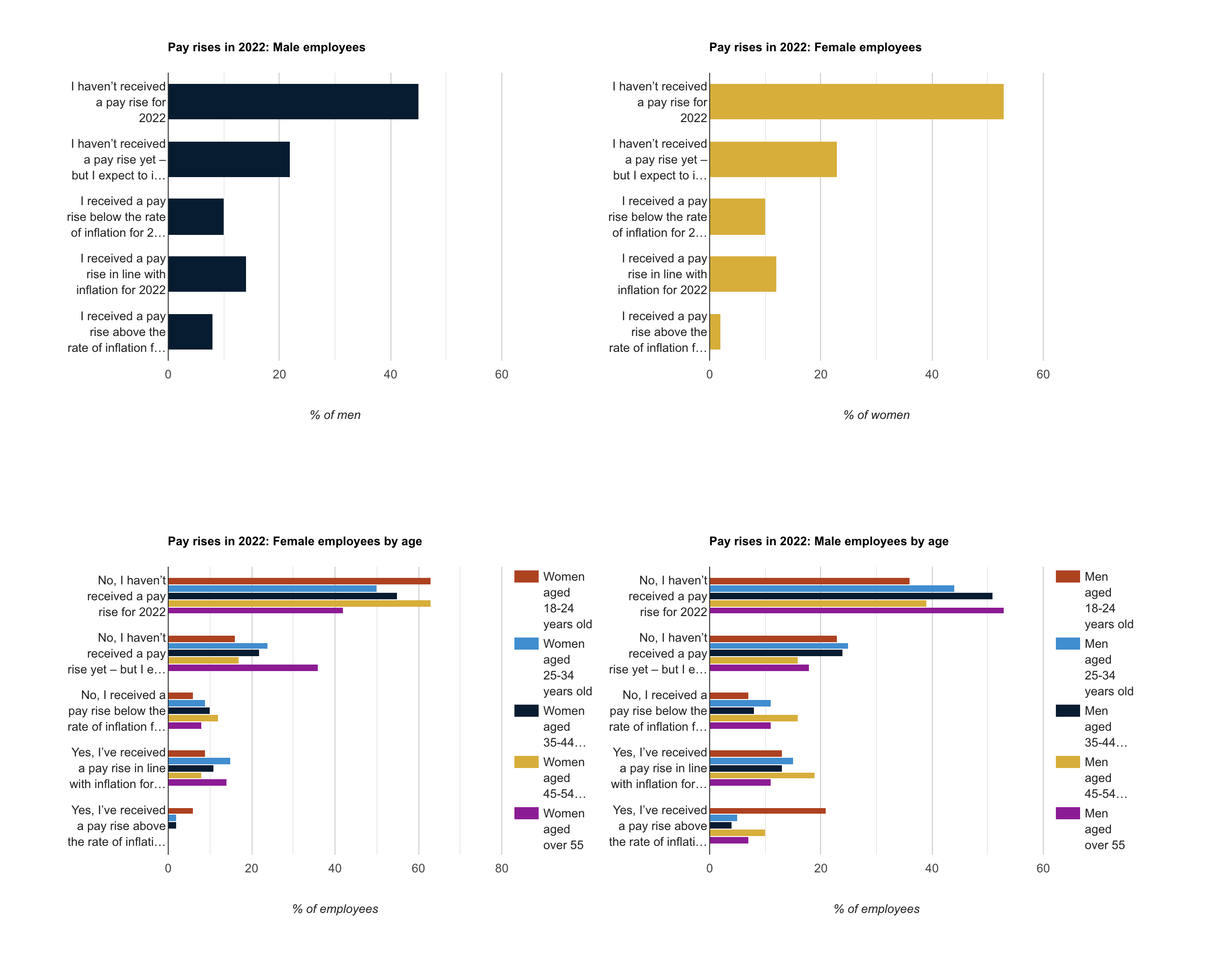
Percentage of the week that employees typically work from home:
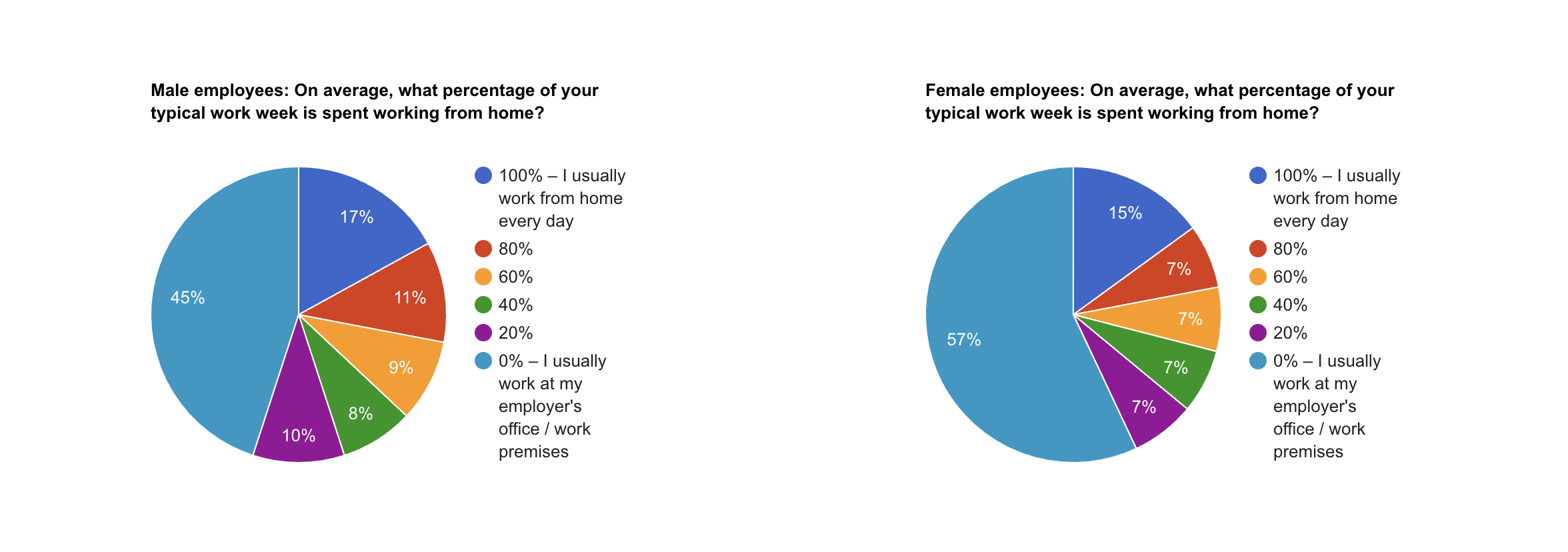
Do you agree that: Employees and job seekers are in the driving seat when it comes to negotiating salaries, benefits and flexible working?
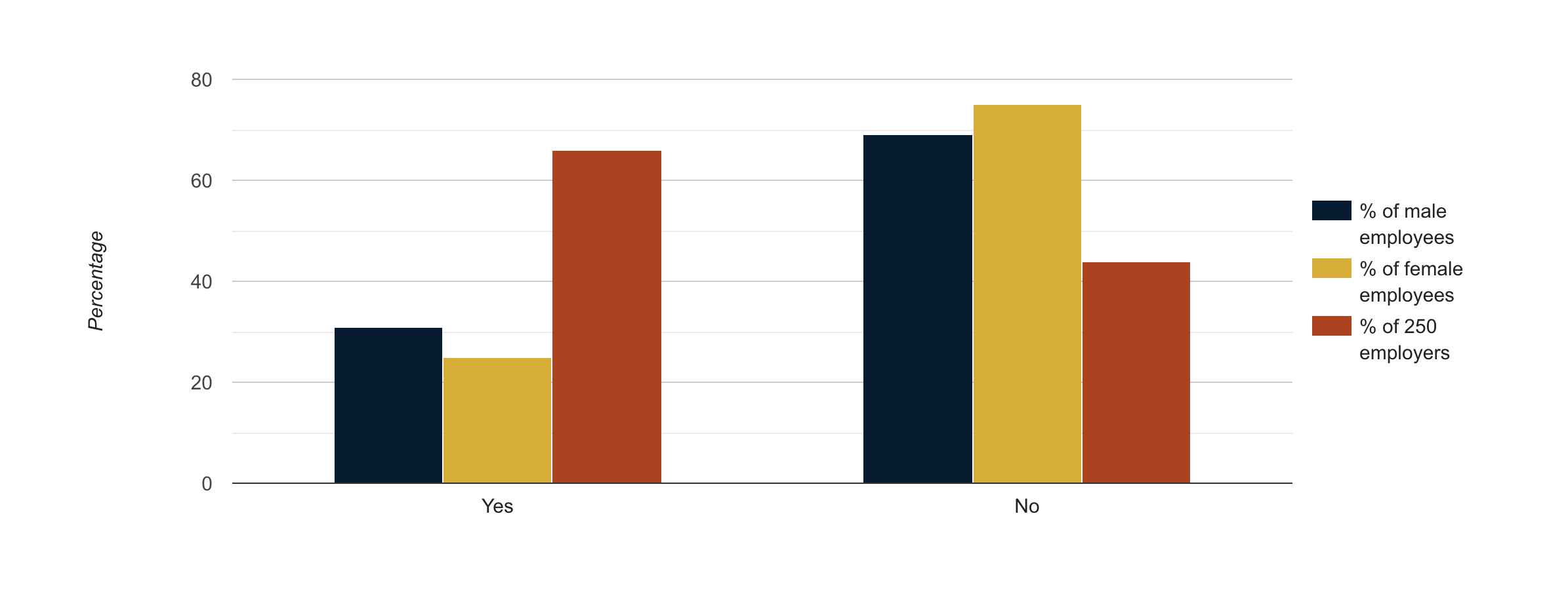
Employees share their thoughts on their most recent pay rise:
64% of employees think that their last salary increase wasn’t fair, 70% that it wasn’t reflective of their work, and 59% that it wasn’t in line with the market rate for their role. Over three-quarters (78%) also agree that their pay rise hasn’t kept up with the rising cost of living in the UK.
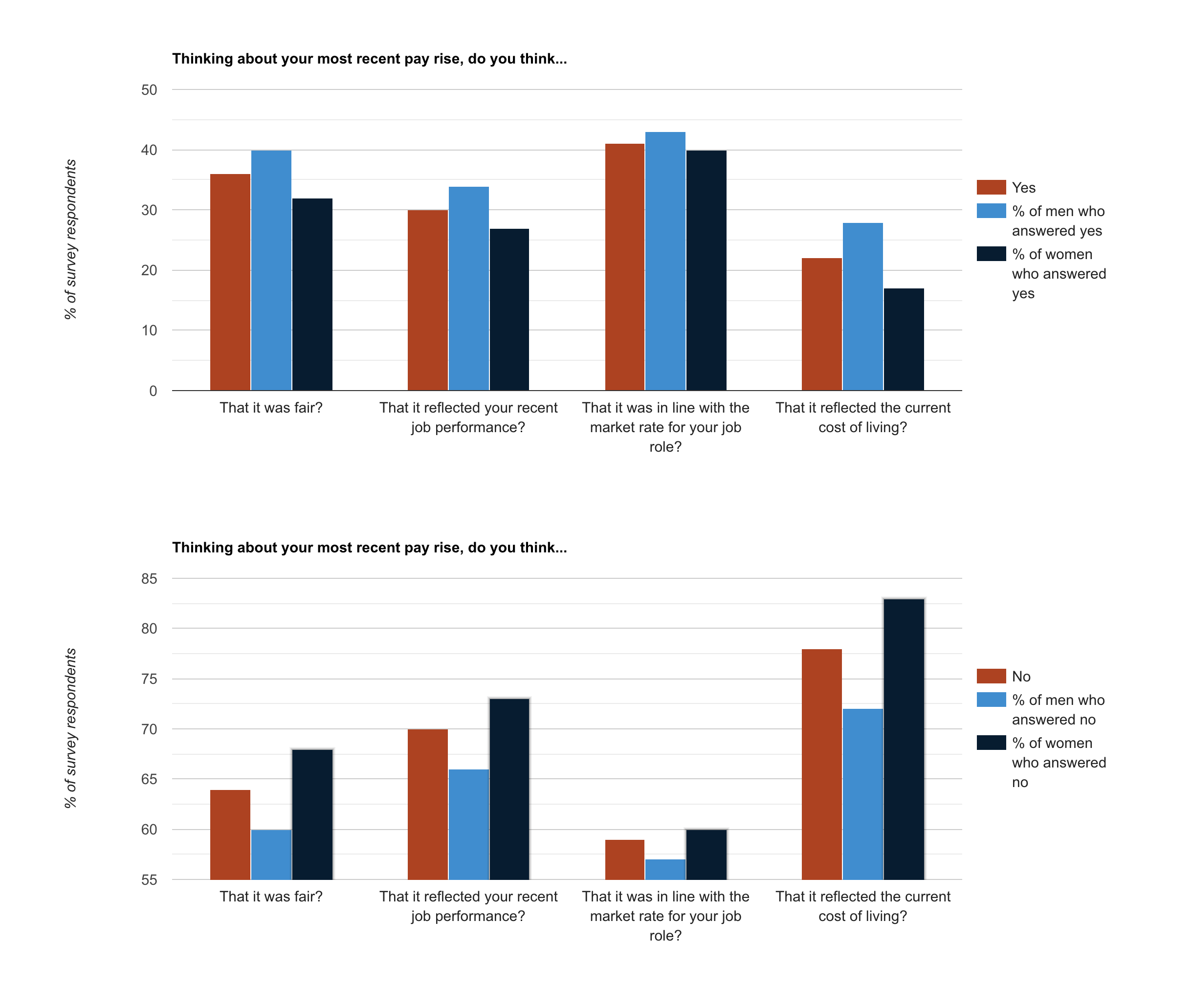
Employees: How likely is it that you will change employer within the next year?
Over a third (37%) of all respondents, on average, say it’s likely or very likely (26% and 11% respectively) that they will change employer within the next year.
Over two-fifths (42%) say they are not planning to move jobs but are open to it, while one in five (21%) say they are happy to stay in their current role – at least for the next year.
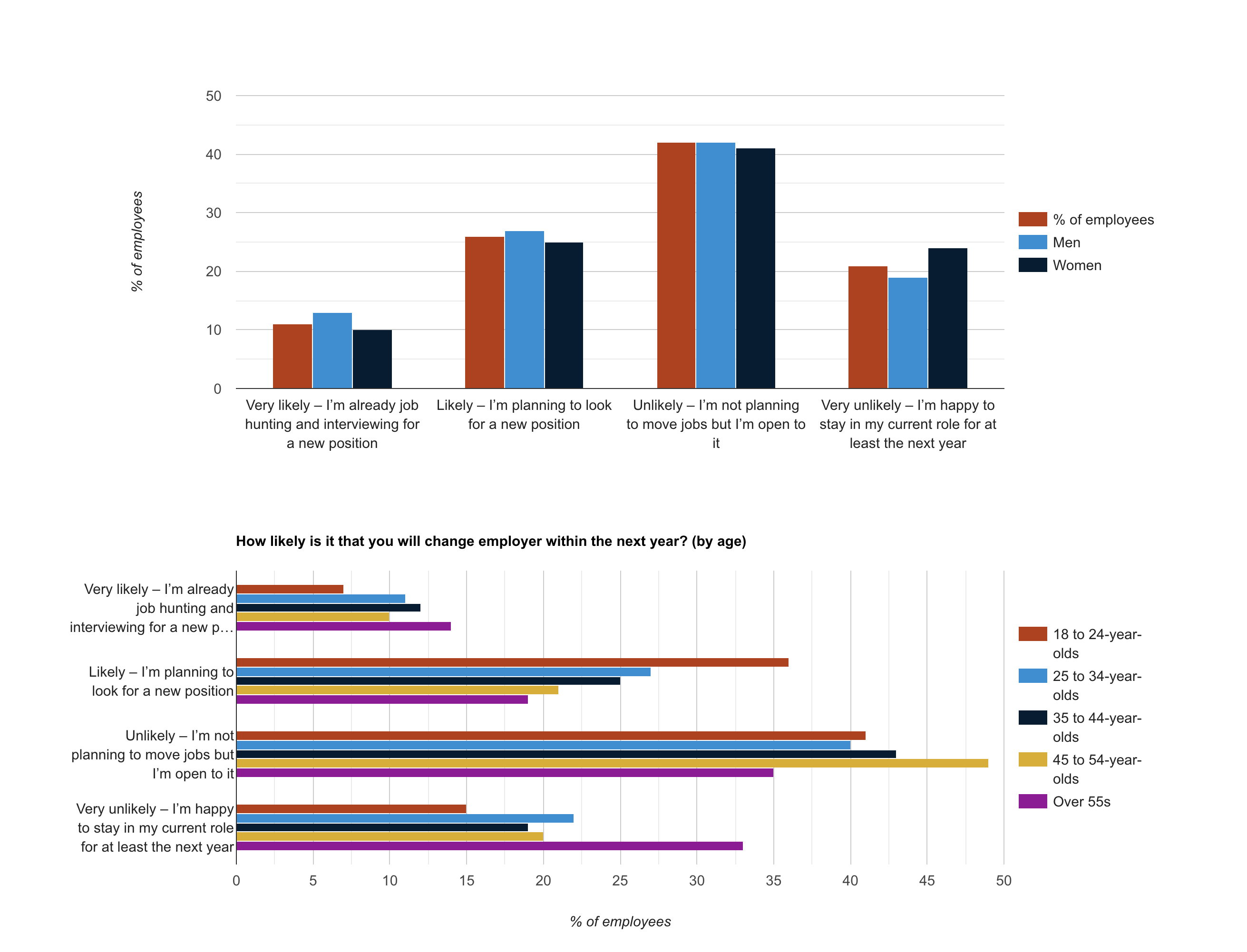
How likely is it that you will change employer within the next year? - by industry
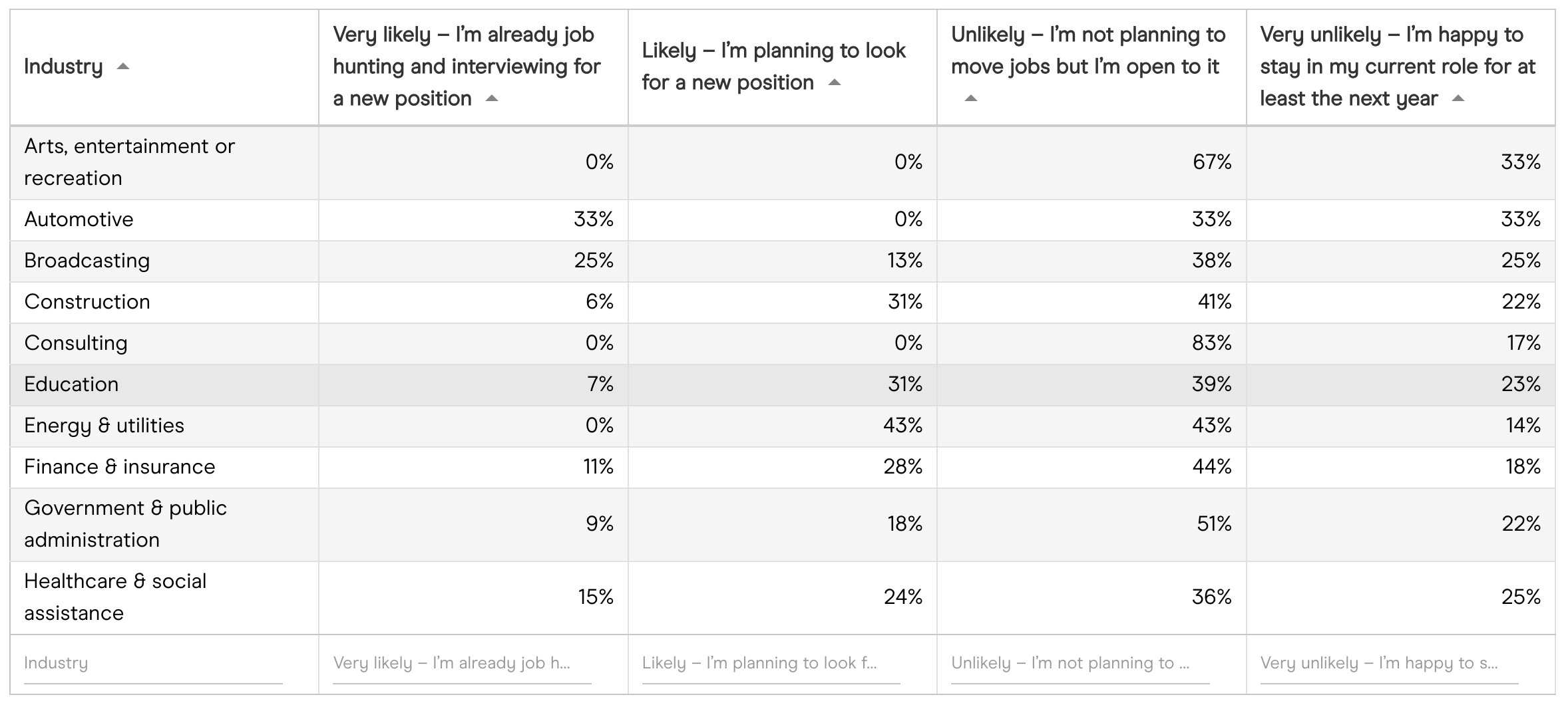
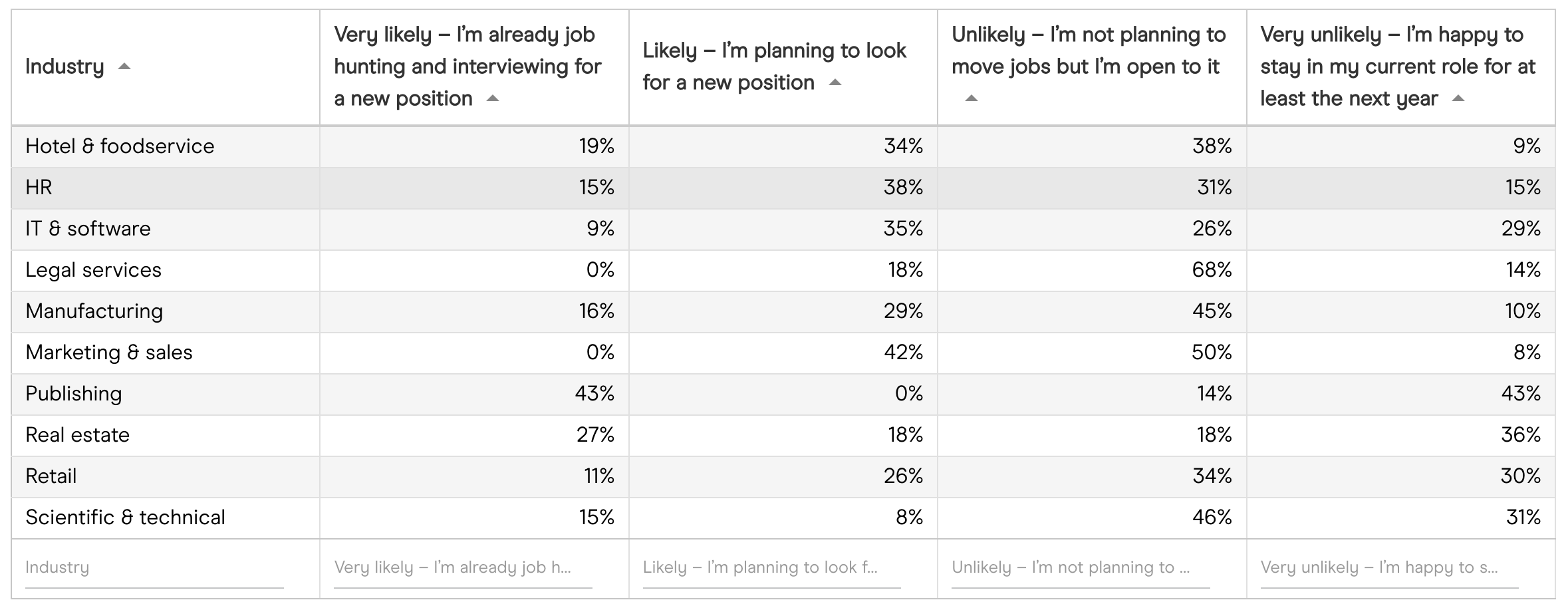

Employees’ thoughts on the fairness of their recent pay rise vs likelihood of leaving their job
Over two-fifths (44%) of employees who believe that their last pay rise was unfair say it’s likely or very likely that they will change employer within the next year, compared to just 25% of those who believe that their last pay rise was fair.
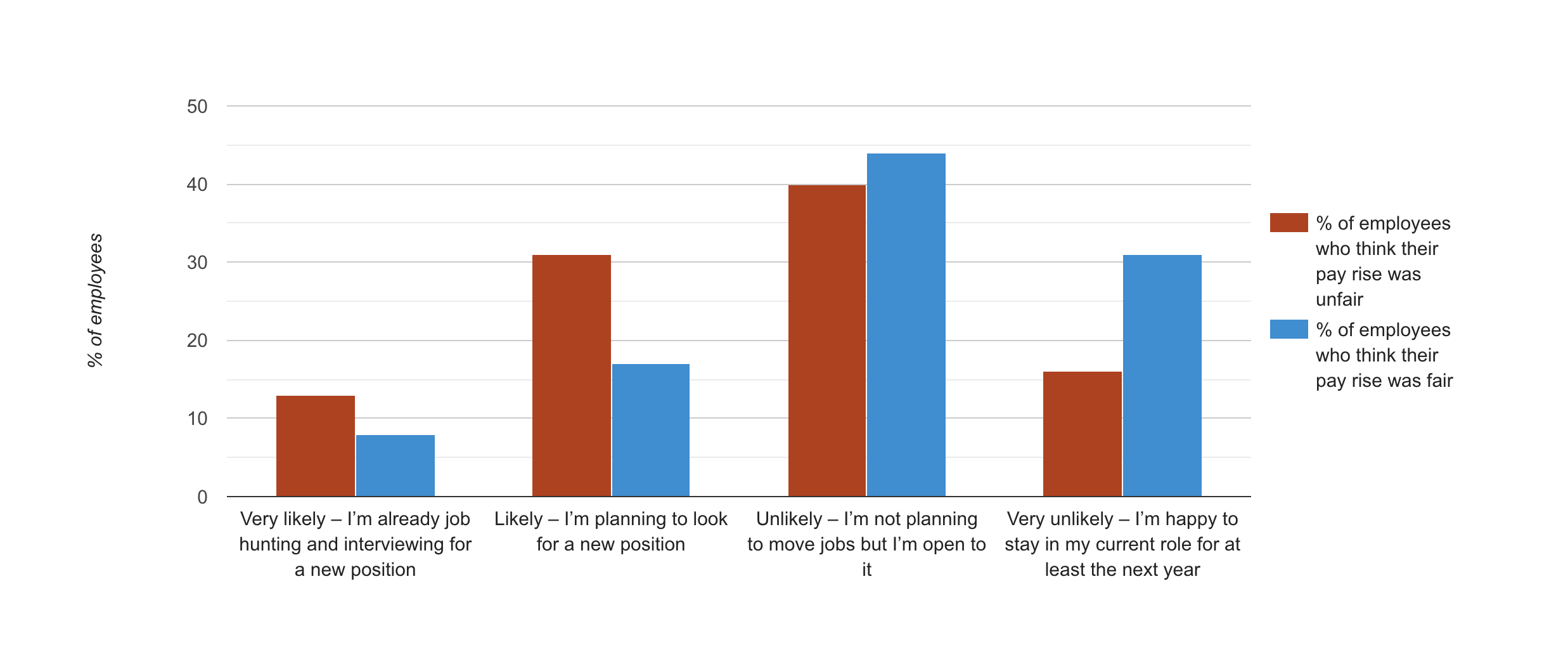
Employees’ thoughts on whether their pay rise reflects their recent job performance vs likelihood of leaving their job
Two-fifths (40%) of employees who think that their last pay rise wasn’t truly reflective of their recent job performance say it’s likely or very likely that they will change employer within the next year. In comparison, only 29% of people who think that their pay rise reflected their recent job performance are planning to do the same.
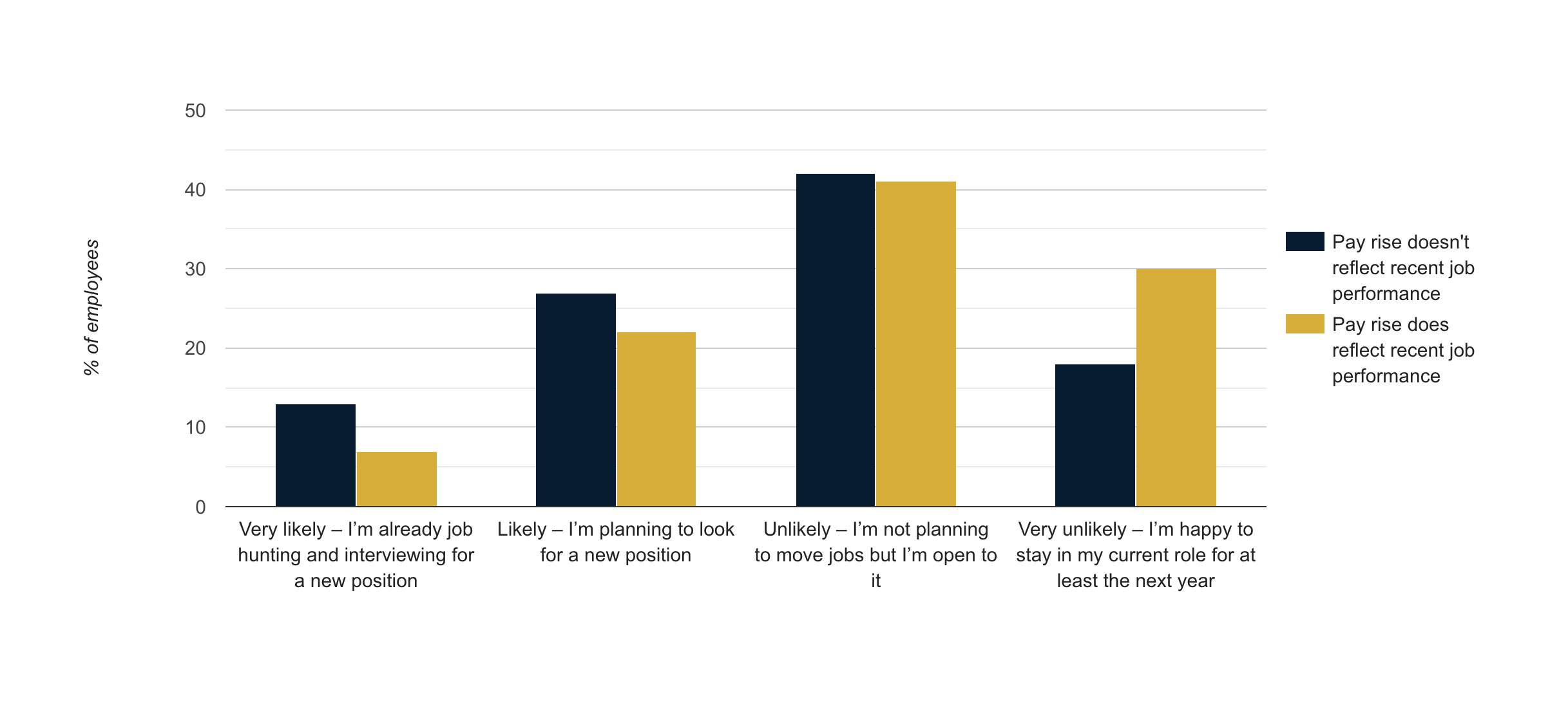
Flexible working: comparison between male and female employees
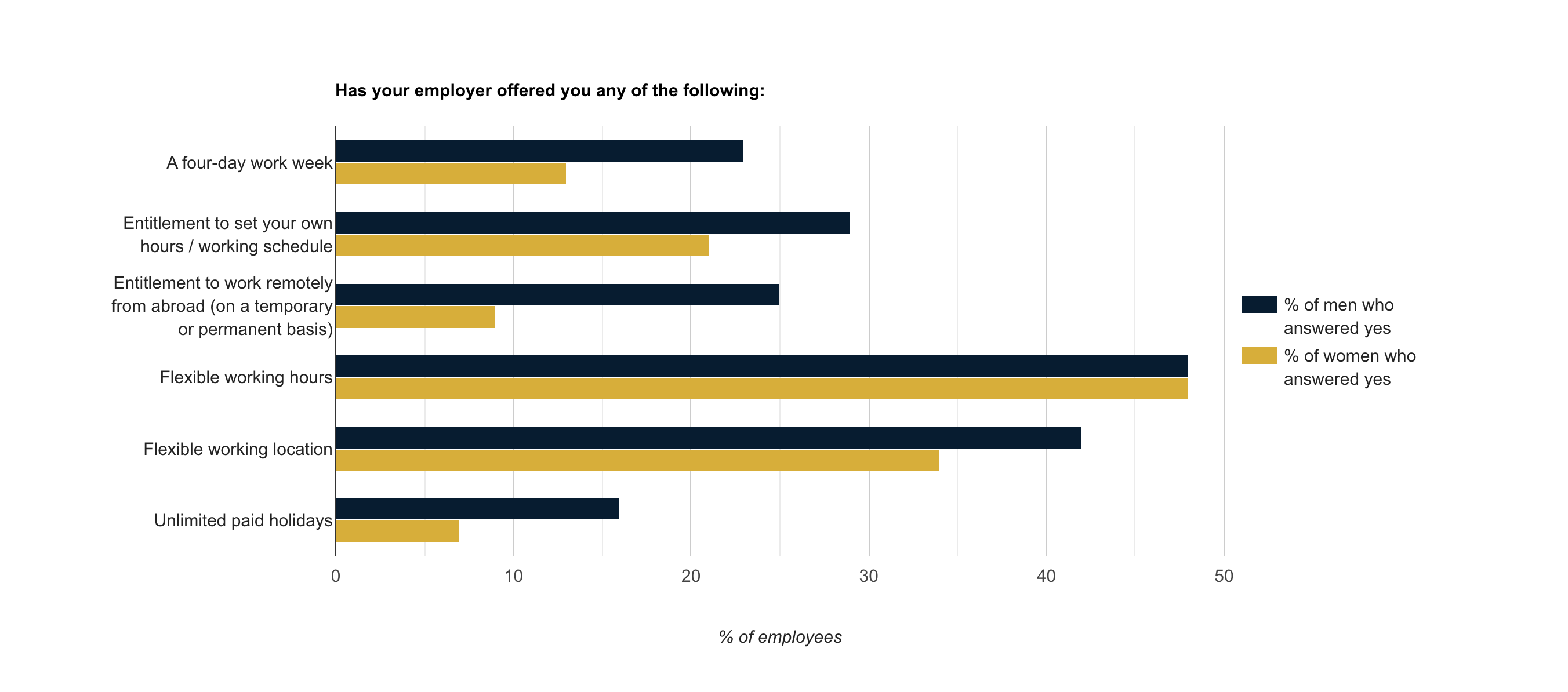
Ciphr asked a similar question to employers. According to the results, 60% of organisations offer their staff flexible working hours, 63% provide contractual sick pay, and 64% have mental health and wellbeing support available to their employees.
Employees: Have you been approached by a recruiter/headhunter in the past 3 months?
One in five (21%) employees, on average, have been approached by a recruiter or head-hunter in the past three months. For people working in consulting, human resouces, IT or sales, for example, it’s much higher.
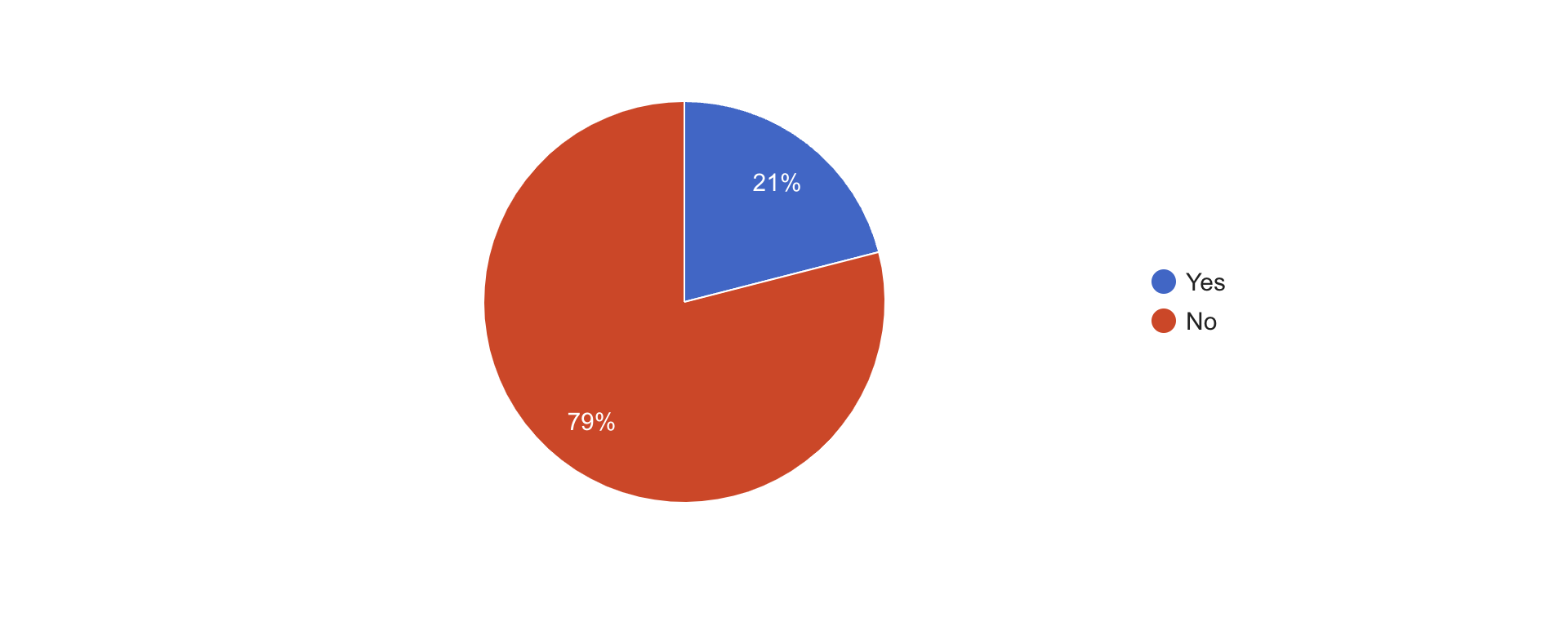
Employees who say they have been approached by a recruiter or headhunter - by industry
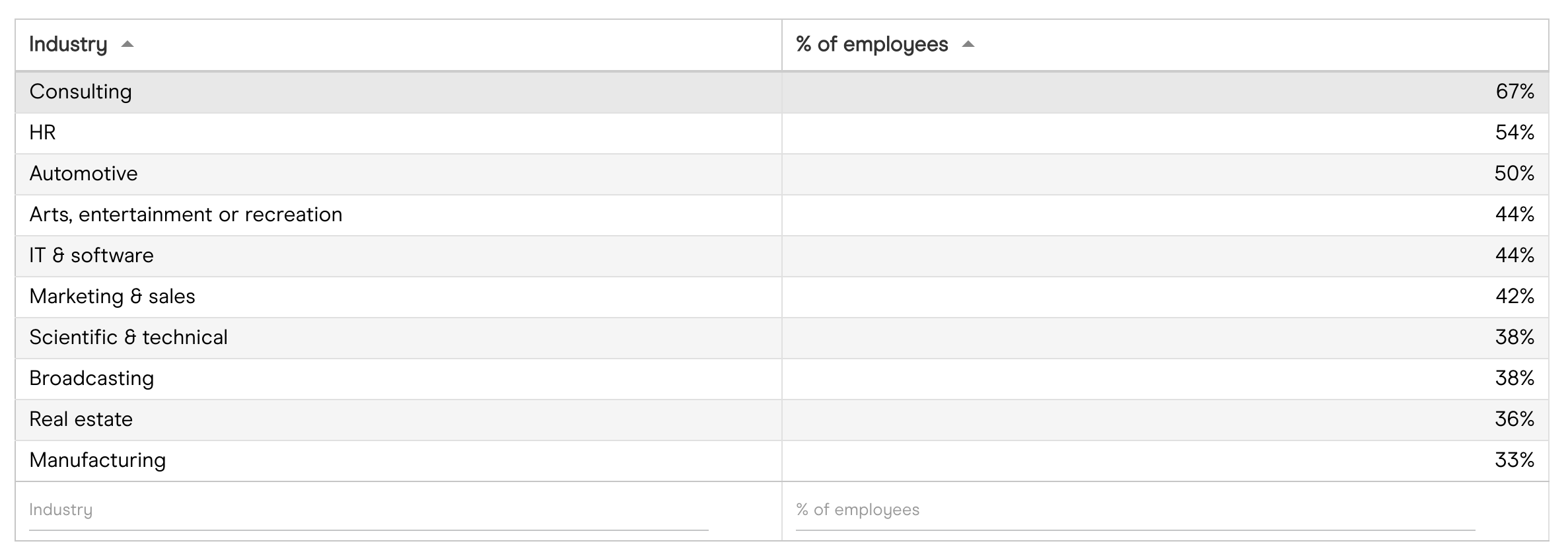
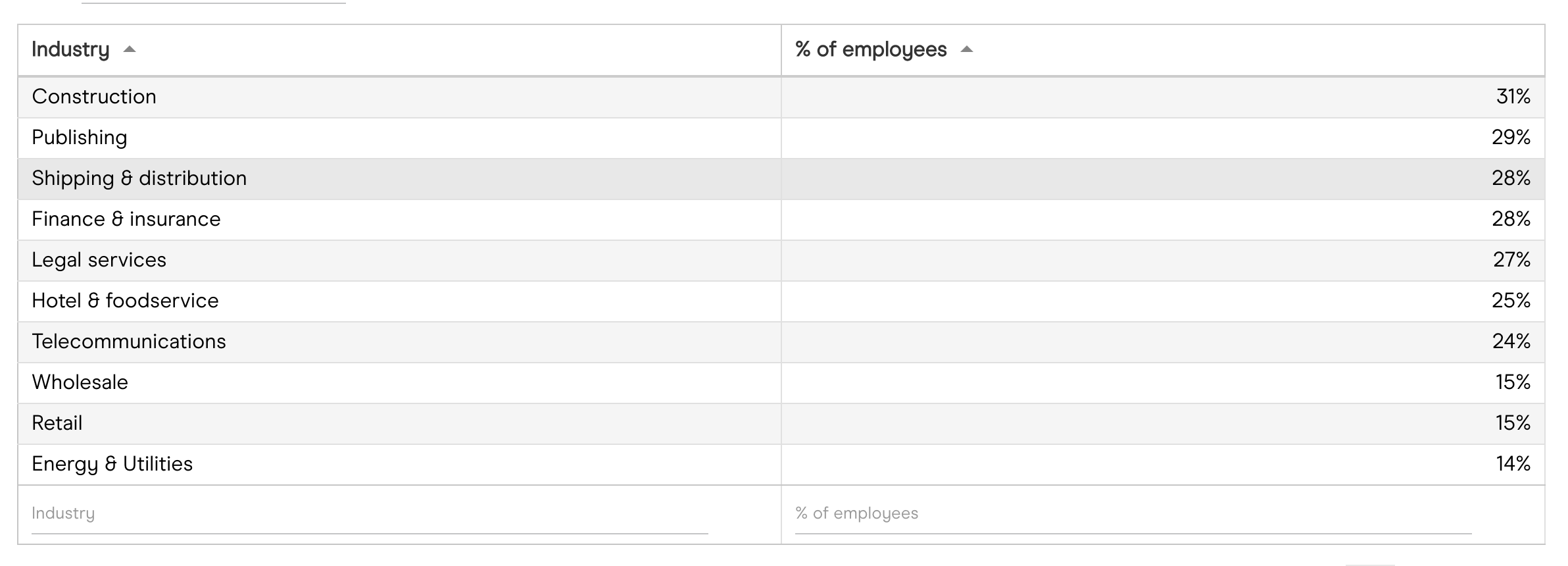

Employees: If you were approached by a recruiter hiring for a similar role to your current job (in terms of your skills and experience), what % pay increase would you need to be offered to consider it?
34% of employees say they’d need to be offered a 10% to 14% pay rise to consider a similar role at a different organisation, while 30% of employees would hold out for a salary increase of at least 20% or more.

How often do salary reviews take place: comparison between employees and employers
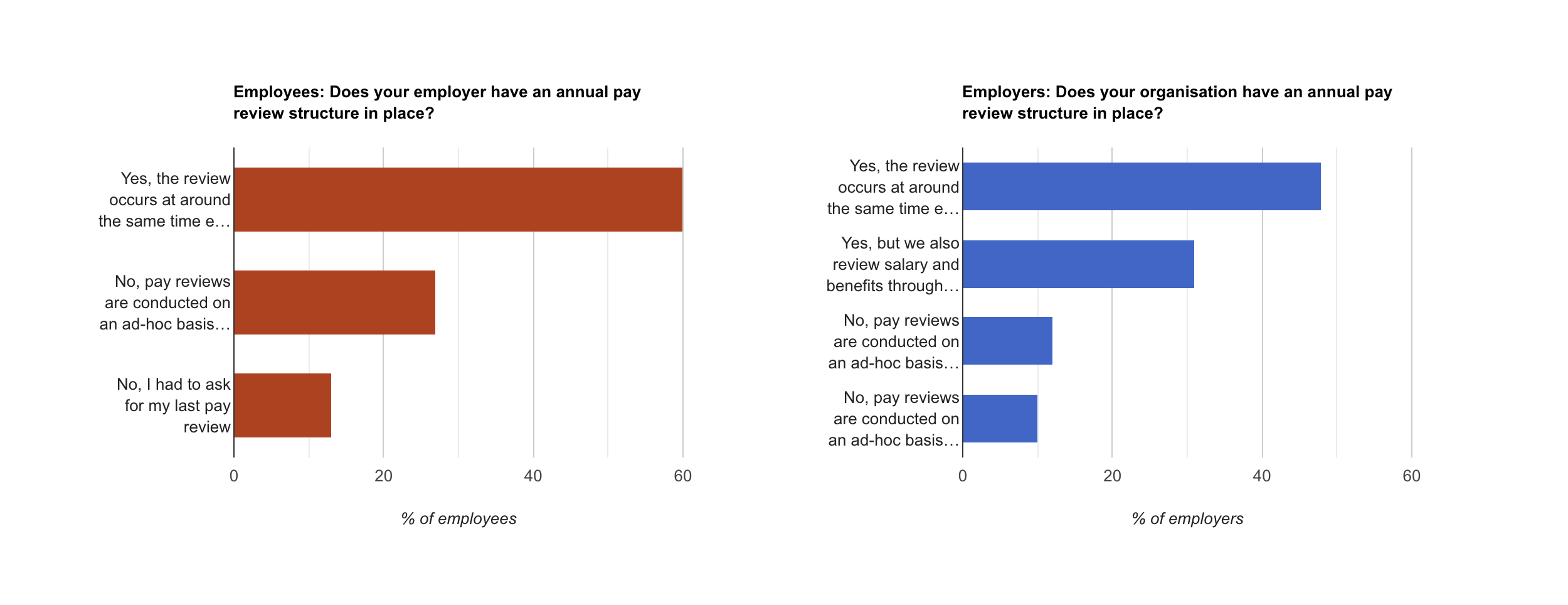
Employers: What does your organisation base its salary reviews on?
Factors that employers take into consideration when determining pay rises include an employee’s performance (45%), cost of living (37%), an employee’s potential (36%), the market rates for job roles (36%), and an employee’s flight risk (21%).
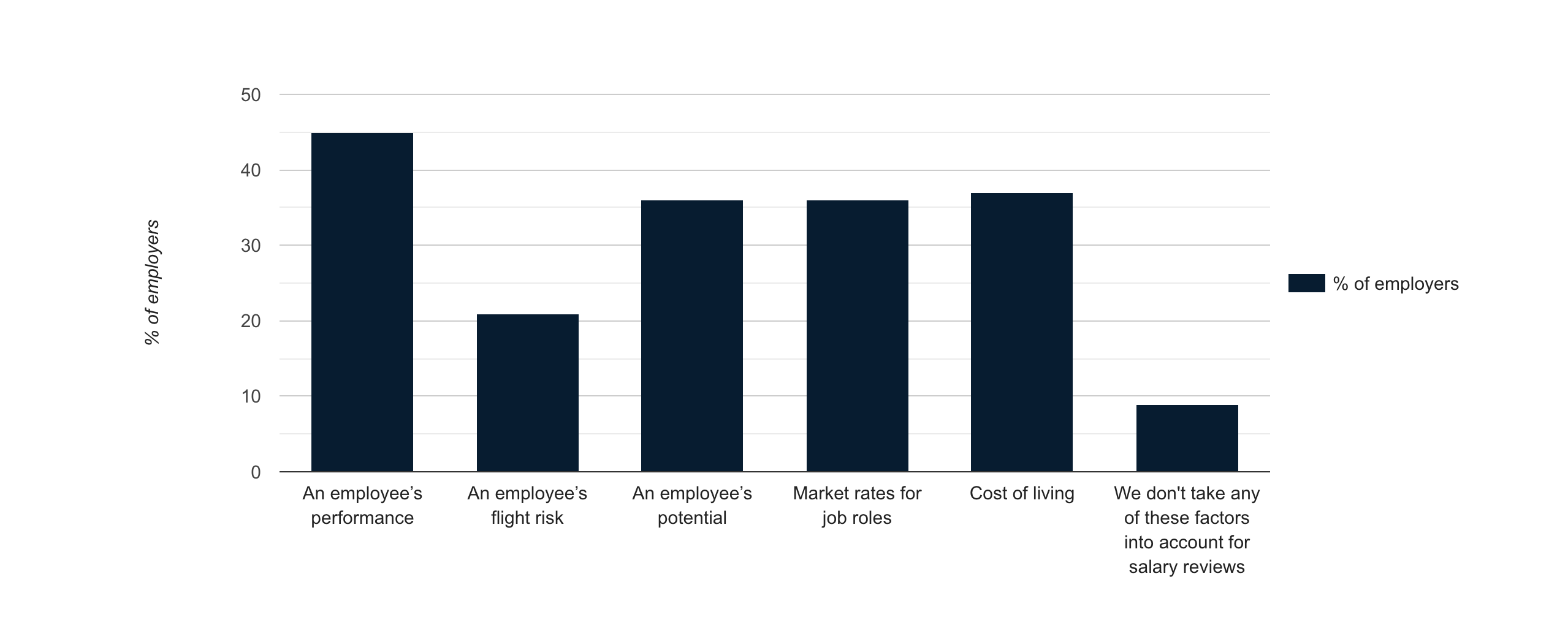
Employers: To what extent do you think employees are aware of all the different factors that influence whether they will be awarded a pay rise, and how much that pay rise will be?
Only 17% of employers say that their staff are completely aware of all the different factors that determine pay rises, while 16% say that their employees are not aware how pay rises are determined at all. Nearly half (44%) of employers say that their staff are aware to some extent, and nearly a quarter (23%) say that their staff are aware to a great extent.
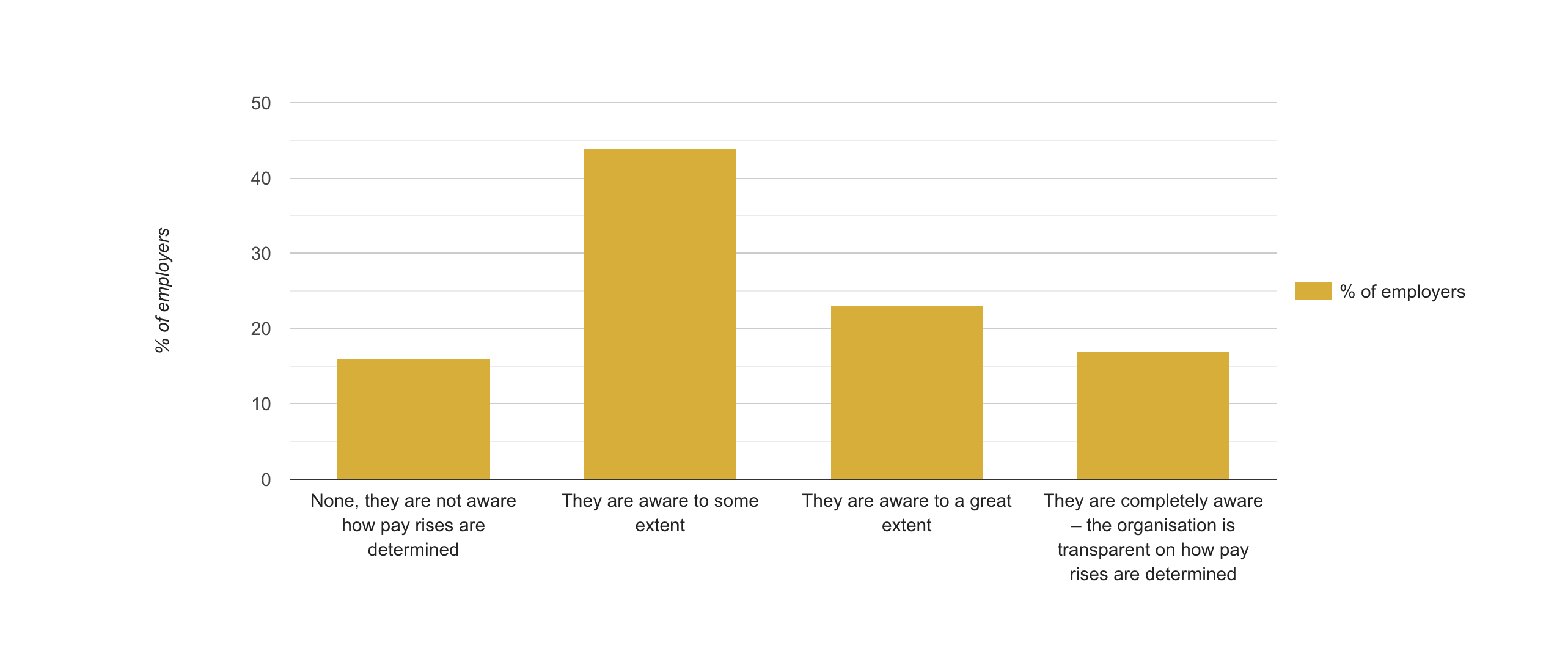
Employees who say they haven’t received a pay rise for 2022 – by industry
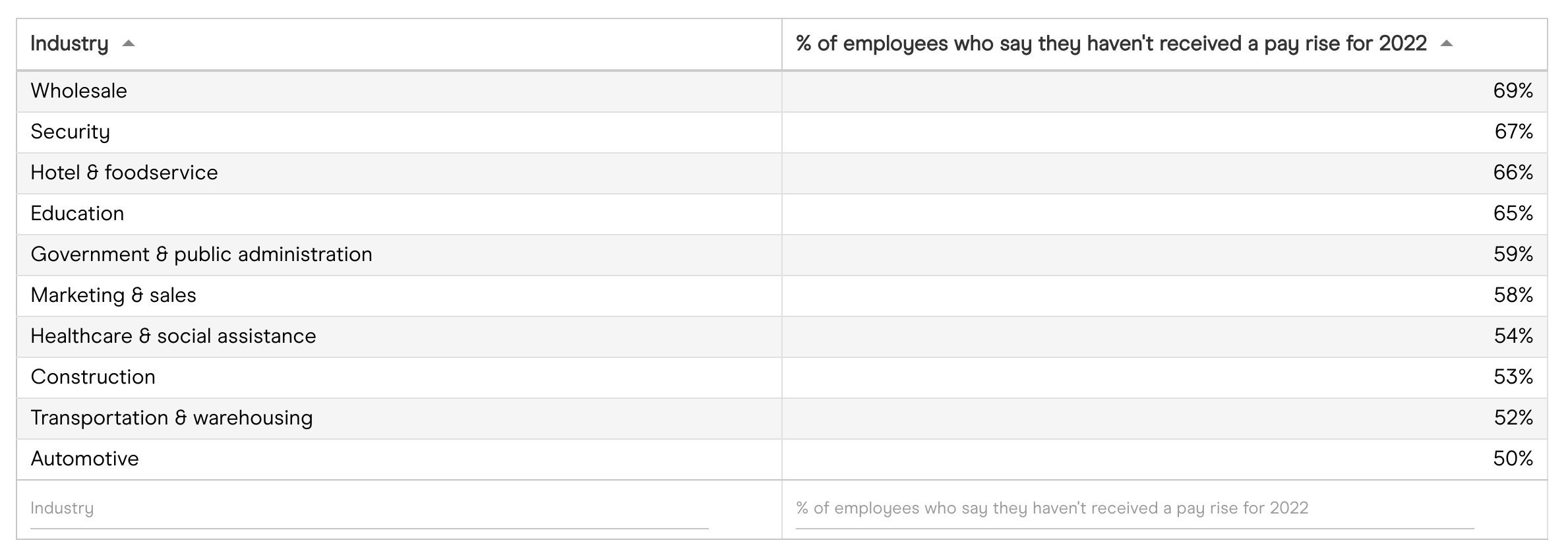
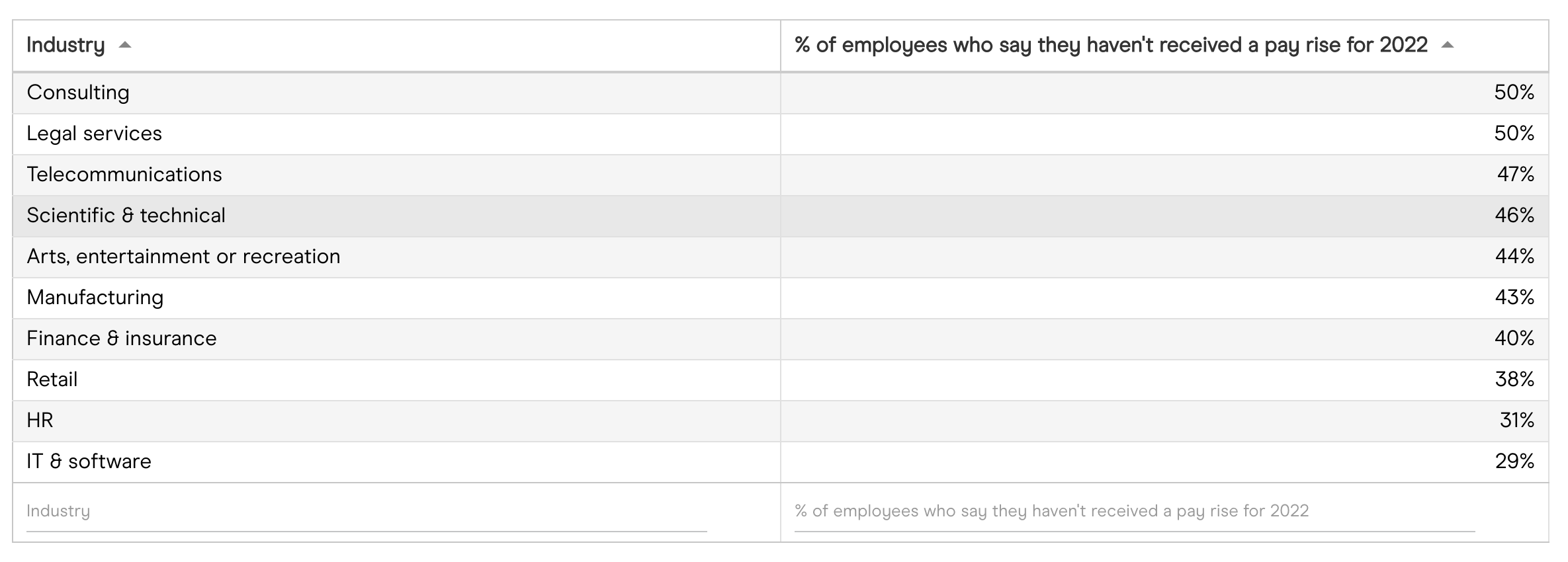

Notes
Ciphr conducted an online survey of 1,001 employed British adults between 24-25 February 2022. None of the survey respondents own or run the organisation that employs them. Nearly two-fifths (64%) of the people surveyed work at organisations which have 251+ employees, a quarter (26%) work at organisations that have 51 to 250 employees, and one in 10 (10%) work at organisations that have 26 to 50 employees.
Ciphr conducted a separate online survey of 332 UK employers between 18-26 February 2022. Survey respondents hold the following job titles: owner or partner, CEO/president, CFO, director, or C-level executive. Over half (51%) of organisations surveyed have 251+ employees, a third (34%) have 51 to 250 employees, and one in seven (15%) have 26 to 50 employees.
All statistics have been rounded to the nearest integer or to one decimal place. Totals may not sum due to rounding.
